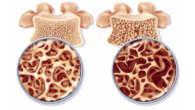
Scientists explain why food tastes twice as good when you're hungry
0
When you hungry, the food just doesn't taste that good, and now researchers know why. Japanese researchers have found that neurons that express proteins called agouti-related peptides (AgRP) change how your taste buds work when you're starving. These neurons are located in the hypothalamus, a region of the brain that helps regulate appetite.
The researchers selectively activated AgRP-expressing neurons in mice that had recently been fed. Turning on these neurons increased the mice's appetite for sweets and increased their tolerance for bitter tastes – similar to the conditions observed during fasting.
Health benefits of intermittent fasting
Here are some reasons to try taking longer breaks between meals:
Improves blood sugar control
A study of 10 people with type 2 diabetes shows , that short-term fasting significantly lowers blood sugar levels. Another study reported that both intermittent fasting and alternate-day fasting were as effective as caloric restriction in reducing insulin resistance.
Fights inflammation
Long breaks between meals help fight inflammation. One study shows that intermittent fasting for one month significantly lowers levels of inflammatory markers.
Improves heart health
Studies show that intermittent fasting lowers blood pressure and lowers the level of “bad” lipoprotein cholesterol, total cholesterol and triglycerides. It is associated with a lower risk of coronary heart disease and diabetes, which is a major risk factor for heart disease.
Increases the secretion of growth hormones
Human growth hormone (HGH) is a type of protein that plays a central role in growth, metabolism, weight loss and muscle strength. To increase your growth hormone levels, try not to eat for at least 12 hours. Research shows that fasting increases the secretion of growth hormone due to low insulin. A long-term increase in insulin levels can lower growth hormone levels.









Leave a Reply